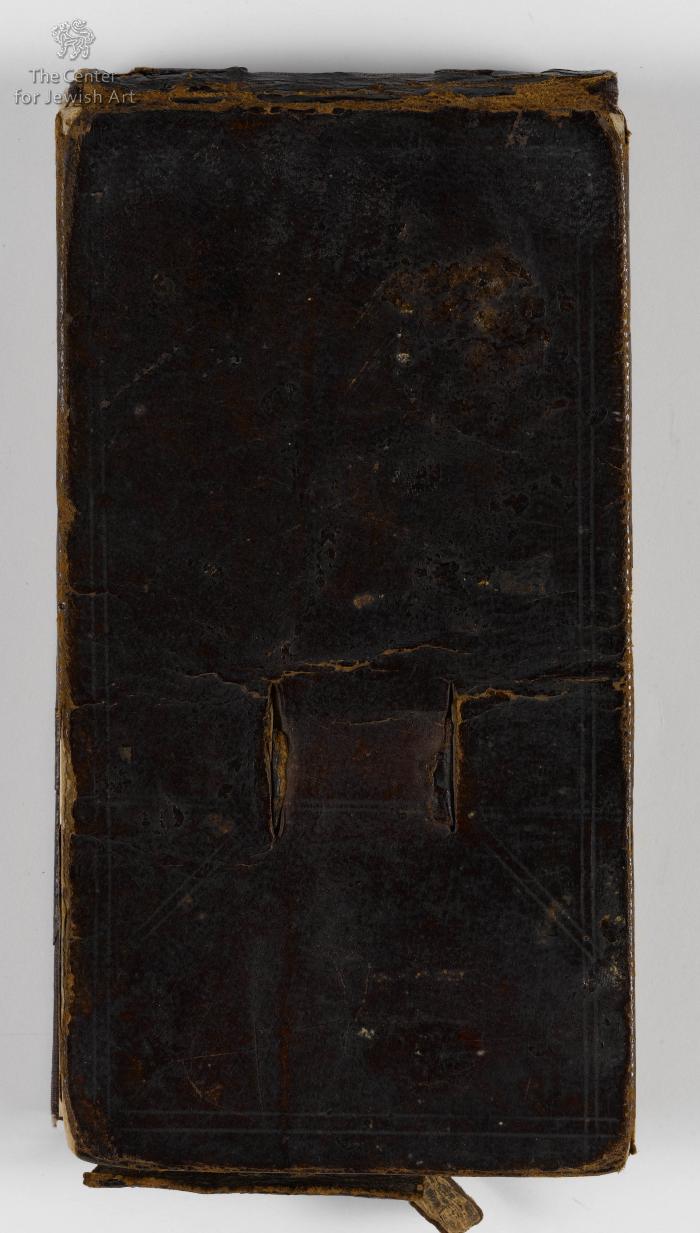Obj. ID: 53427 Piyuttim, Jerusalem, circa 1850

sub-set tree:
The following description was prepared by William Gross:
Chaim Israel Meir Mizrachi was a physician, author, kabbalist, poet, etc. He was born and he died in the Azerbaijan region of Iran but spent a good deal of his life in Jerusalem, where this manuscript was penned. He wrote several books and anthologies of liturgical poetry, of which this is one. Many of the poems here are by one of the most famous religious poets, Israel Najara. Mizrachi was an excellent calligrapher and the poems appear in colored inks in many original shapes formed by unusual arrangements of the text. This shape appears to be that of a Torah finial, a silver decoration for the Torah scroll in the typical form of that object in Jerusalem, with an animal by its side. Other manuscripts, including massive medical texts, exist from his hand as well, in libraries, museums and in the hands of his descendants in Jerusalem. The illustrated, multicolored pages with the piyutim (liturgical poetry) written in the form of a hamsa is one of the most unusual.
The calligraphy in the form of the hand, or hamsa, is most unusual in manuscripts.
Pages: 142





















